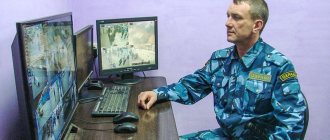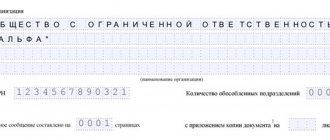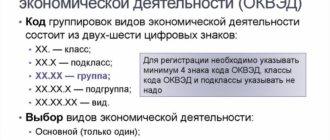Licensing | 07/18/2019 | 5979
Everywhere you look, there are banners with upcoming seminars, advertisements for trainings are visible everywhere, and there are noticeably more tutors and teachers. All this shows that business in the education sector can be very profitable. Perhaps you too would be interested in trying your hand at this area. In this article, we will try to figure out how to obtain a license for educational activities for individual entrepreneurs. It is quite difficult to obtain it; you will need to comply with many formalities.
Who needs a license
First, let's find out when a license for educational activities is not required. In Decree of the Government of the Russian Federation of October 28, 2013 N 966, which approved the regulation on licensing educational activities, only one such possibility is indicated. A license is not needed if the services are provided personally by an individual entrepreneur . These are the services of tutors, private teachers, studios, clubs, etc., where classes are taught by the entrepreneur himself, who has the appropriate education and work experience.
We draw the attention of individual entrepreneurs - if you hire other teaching staff, then a license for educational activities of an individual entrepreneur is required. At the same time, workers of other profiles who do not directly provide educational services can be hired without a license.
In the previous edition, the provision on licensing of educational activities allowed for another opportunity to work without a license - if, based on the results of training, a final certification was not carried out and a document on education was not issued. It is still possible to conduct trainings, seminars, lectures without a license, the completion of which does not require supporting documents, but such activities are not called educational, but cultural or leisure.
The list of services that require a license includes the following types of education: preschool, general, secondary vocational, higher, additional general education, additional vocational and education of religious personnel of religious organizations.
Obtaining a license for educational activities is a complex and lengthy process. Only reviewing documents and making a decision on issuing a license or refusing to issue it takes 60 days. Before that, we need to prepare a number of permits from other government bodies and develop our own educational programs. And yet, business in the field of education can be called profitable, so if you want to engage in this area, you need to go through the licensing procedure once.
The license is issued for an indefinite period , and if you do not re-issue it, you will no longer have to contact officials on this issue.
The most profitable areas of study for a training center
The choice of direction for training is very important for the success of the created training center. It should be noted that you can teach anything - from manicure techniques to working in the cryptocurrency market. Of course, you, as the organizer of a training center, do not need to understand all the areas yourself. Your main task is to organize a business. Finding the best trainers or teachers, especially since you can offer part-time work, not full-time, is not difficult.
As for Russia, the market for additional education is estimated at more than 100 billion rubles. Almost seven million citizens of the Russian Federation are enrolled in additional education courses.
According to market participants, the most popular courses are those lasting up to one month.
The entire market of additional education in Russia can be divided into two large parts: additional education for children and adolescents, and additional vocational education.
With additional education for children, everything is simple. The centers that prepare for the Unified State Exam (USE) are in greatest demand among training centers. This is understandable, since without special preparation for the Unified State Exam it is very difficult to score enough points to enter a higher educational institution. In second place in demand for children and adolescents are various language courses, especially English courses, which is due to the traditionally low level of its teaching in regular secondary schools. Next come art and sports education. The areas of additional art education are especially diverse. Both classical drawing courses and modern areas, such as photography or acting, are popular there.
Determining the list of the most popular courses for additional professional education is much more difficult; their list is too extensive. The majority of students in this segment (about 44%) updated their knowledge of a profession previously acquired in the higher or secondary education system. The students of these courses were professionals actively working in their main specialty, for example, accountants, auditors, lawyers. Courses aimed at training and additional training of education and health workers are in great demand. Considering the industrial nature of the most popular areas of activity of the training center, we can note that the leading sector here is mining, which is associated, on the one hand, with the rapid technological development of the industry, and with the presence in this industry of sufficient financial resources, which, according to statistics, made it possible to involve almost every third of their employees in the field of additional education.
It is worth paying attention to such areas of additional education as Internet marketing, graphic design, logistics and corporate management, that is, those areas in which higher education does not keep up with modern development trends.
Speaking about additional professional education, one cannot fail to mention the concept of lifelong education, which is very popular in developed countries. In short, this concept provides for education “not for life, but throughout life.” According to this indicator, Russia lags significantly behind developed countries. In the Russian Federation, no more than 20% of workers participate in the process of continuous education; in the countries of the European Union this figure is twice as high. Thus, the potential for the development of additional professional education is enormous; the market should grow at least twice.
Therefore, let’s consider what trends exist in the market of additional professional education in developed countries, since the trends that exist there will soon be in demand in our country, we need to prepare for this in order to occupy our niche in advance.
First of all, these are courses related to business administration and management activities. For example, these include courses aimed at developing analytical skills, tools for making decisions in difficult situations, training to increase productivity and manage your own time. Training centers specializing in developing management and leadership skills for women are developing very quickly. In Russia, this area is poorly developed; gender in education in our country, as a rule, is not welcomed, but it is a global trend. It is worth taking a closer look at this direction.
Professional courses in cooking, psychological development and repair are very popular abroad.
So which direction should you choose as more profitable? There is no exact answer to this question. You cannot choose the specialization of a training center based on which areas are most in demand now - by the time you enter the market, you will have to compete for clients with training centers that will already have a strong reputation in this segment. Choose those areas of specialization of the training center that either allow students to retrain and get a more modern specialty, or earn more money in their specialty. Well, and, of course, fill your leisure time. Cooking courses are especially popular these days.
License requirements
The licensing regulations establish the following requirements for applicants in 2020:
- own or rented building (premises) corresponding to the declared educational programs;
- sanitary and epidemiological conclusion for this premises;
- logistical support of educational activities in accordance with the requirements of federal standards;
- compliance with the conditions for protecting the health of students;
- own developed educational programs;
- printed and electronic educational and information resources for these programs;
- full-time teaching staff or engaged under a civil contract with professional education and work experience.
For a complete list of requirements, depending on the type of education, see the text of the Resolution.
The regulations governing the licensing of educational activities do not clearly address the issue of the organizational and legal form of the licensee. The Law on Education No. 273-FZ gives the following concept of an educational organization: “a non-profit organization that carries out educational activities as its main activity on the basis of a license.” The concept of “organization providing training” means a legal entity that conducts this activity as an additional activity.
The following is another interpretation: “organizations engaged in educational activities,” which means:
- educational organizations;
- organizations providing training;
- individual entrepreneurs carrying out educational activities.
A license for the right to conduct educational activities can be obtained regardless of the legal form and commercial orientation of the licensee. At the same time, an LLC can obtain a license for educational activities if this line of business is additional and not the main one.
License for educational activities in additional education
Let's look a little more closely at additional education.
In accordance with paragraph 14 of Art. 2 of Law No. 273-FZ, it is understood as education that is not related to increasing the level and is aimed at meeting the various educational needs of a person. Such education may be aimed at improving:
- physical;
- spiritual and moral;
- intellectual;
- professional skills of the student.
NOTE! If additional education is implemented within the framework of general education programs, then state education standards do not apply to it. If the student is engaged in an additional professional program, then teachers should be guided by educational standards (letter of the Ministry of Education and Science dated March 29, 2016 No. VK-641/09).
Documents for obtaining a license
The license applicant must document that he has created all the necessary conditions for the provision of services in the field of education. To do this, collect the following package of documents:
- application for a license;
- a document confirming the right to use the premises (a copy of the certificate of ownership, lease or sublease agreement);
- a copy of the LLC charter or a copy of the individual entrepreneur registration certificate;
- a copy of the Unified State Register of Legal Entities or Unified State Register of Entrepreneurs;
- a copy of the tax registration certificate of an LLC or individual entrepreneur;
- copies of the conclusions of the SES and State Fire Supervision on the compliance of the premises with the necessary requirements;
- certificate on the conditions for the functioning of the electronic information and educational environment;
- information about printed and electronic resources;
- certificate of teaching staff;
- certificate of approval of educational programs;
- certificate of conditions for obtaining education by students with disabilities;
- certificate of logistics;
- confirmation of payment of state duty in the amount of 7,500 rubles;
- list of documents.
Certificate forms are available on the Ministry of Education website.
How to check a license for educational activities
There are several ways for third parties to verify that an individual entrepreneur or legal entity has a valid license:
- using the search form in the consolidated register posted on the official website of Rosobrnadzor;
- having studied the website of an organization or entrepreneur, on which, in accordance with the requirements for the structure of the official website, approved. by order of Rosobrnadzor dated May 29, 2014 No. 785, a copy of the license must be posted;
- by requesting such information in writing from the licensing authority;
- by visiting the location of an educational organization or individual entrepreneur, which must equip a stand or otherwise post for public access information about the license number and validity period, as well as the licensing authority.
Procedure for obtaining a license
Licensing of educational activities is carried out by Rosobrnadzor and regional executive bodies. You must contact Rosobrandzor if you plan to open:
- higher education institution;
- organizations of federal significance;
- a Russian organization located outside the Russian Federation;
- foreign organization in Russia.
You can make an appointment at Rosobrandzor online on the official website.
In other cases, contact the regional government agencies that have the right to issue licenses. Contacts of these institutions are published on the Rosobrandzor website; to find them, select your region on the interactive map.
The procedure for obtaining an educational license consists of the following steps:
- Study SNiP and SanPin for your field of study.
- Prepare the room and equip it according to requirements and standards.
- Obtain a conclusion from the SES and fire inspection for the premises.
- Develop and approve educational programs.
- Make sure that the teachers of your organization have the necessary documents on education, qualifications, and work experience.
- Purchase furniture, equipment, technology, educational literature, and teaching aids for conducting classes.
- Pay the state fee for issuing a license.
- Submit documents to the licensing authority.
Documents are accepted according to the inventory; if deficiencies are found in them, they are returned to the applicant for revision (for up to 30 days). After this, the stage of checking the accuracy of the submitted information begins, not only documentary, but also with an on-site visit. Within 60 days from the date of registration of the application, officials issue permission or refusal to obtain a license.
Refusal must be motivated and is possible on two grounds: unreliable information or lack of conditions for the learning process. The state fee in case of refusal is not refunded.
How to obtain a license for educational activities
The procedure and nuances for obtaining a special permit in the departments of Rosobrnadzor and regional executive authorities are similar.
| Comparison criteria | Getting permission | |
| In the territorial body of Rosobnadzor | In the executive body of a constituent entity of Russia | |
| Act regulating the procedure | Administrative regulations, approved. by order of the Ministry of Education and Science dated March 17, 2015 No. 244 | Administrative regulations, approved. by order of the Ministry of Education and Science dated November 25, 2014 No. 1517 |
| The time period allotted for consideration of the applicant’s application | 45 working days | |
| Licensing procedure | Acceptance by an official of the authorized body of an application and a package of documents for an inventory (a copy of it is sent to the permit applicant) | |
| Registration of the application (directly on the day of transfer when submitting documents directly or no later than the next working day when received by mail or via the Internet) | ||
| Checking documents for correctness within 3 working days, by the end of which the official sends the applicant a notification about acceptance of the application or the need to eliminate comments | ||
| Request by an official for interdepartmental exchange of information in other public structures | ||
| Conducting on-site and documentary verification of the applicant | ||
| Preparation within 4 working days from the date of completion of inspections by the official of a draft order to grant or refuse permission and transfer it to the head of the authority | ||
What happens if you work without a license?
For the provision of educational services without a license, administrative, tax and criminal liability is provided. The fines can reach 500 thousand rubles, and the term of imprisonment can be up to five years. Of course, such severe punishment is applied extremely rarely when work without a license has caused major damage or large-scale income has been generated.
In addition, the provision of services without a license reduces the competitiveness of an educational organization:
- there are no benefits when participating in an auction for the right to lease municipal real estate;
- a document confirming receipt of education or advanced training is not recognized;
- students studying in an unlicensed organization cannot receive a tax deduction for training costs;
- serious advertising sources do not accept advertisements from such organizations.
We recommend watching an interesting video that discusses the procedure for licensing educational activities.
What taxes and fees should I pay?
In any case, individual entrepreneurs pay fixed contributions for themselves to the Pension Fund and the Compulsory Medical Insurance Fund - this year it is 40,874 rubles. Then everything depends on the organizational and legal form and taxation scheme. Here are popular options:
- Individual entrepreneurs using the simplified tax system pay 6% of revenue or 15% of “income minus expenses.” There is a limit of 150 million rubles, if you earn more, there will be a transition to OSNO, there are more taxes there.
- IP on PSN or on a patent. The cost is fixed, depending on the region. For example, in Moscow the cost of a patent for 2020 will cost 19,800 rubles. The patent is limited to revenue of 60 million rubles. in year.
Individual entrepreneurs pay additional contributions to the Pension Fund if their income exceeds 300,000 rubles. — 1% of the amount over the limit.
For LLCs, the tax situation is more complicated. For example, an LLC using the simplified tax system will pay 6% of income, and then you will either have to withdraw the money in dividends or pay yourself a salary, which is another 13% of personal income tax plus contributions.







